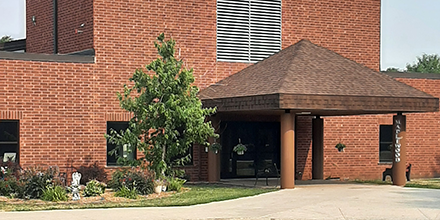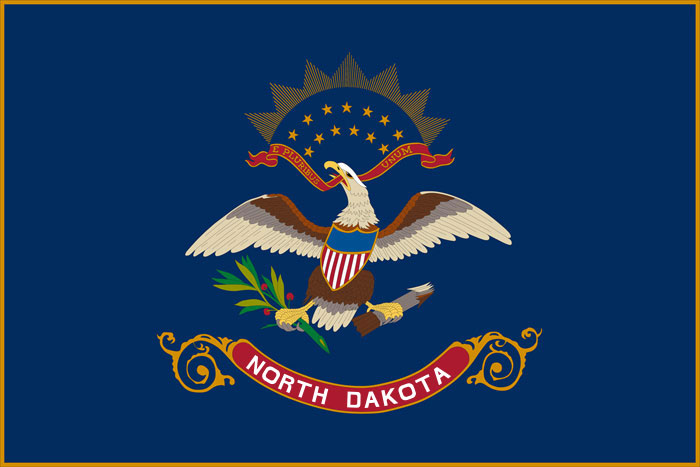Welcome to The Life Skills and Transition Center
The Li fe Skills and Transition Center (LSTC) is a state-operated, comprehensive support agency serving people with intellectual and developmental disabilities in Grafton.
fe Skills and Transition Center (LSTC) is a state-operated, comprehensive support agency serving people with intellectual and developmental disabilities in Grafton.
LSTC serves as a crisis and stabilization center, as well as a safety net for people whose needs exceed community resources. Accredited by The Council since 1989, the center received a three-year Quality Assurance Accreditation in January of 2024.
People supported by the LSTC may reside in an intermediate care facility setting on campus, or in communities across the state. On-site length of stay is meant to be short-term. Off-site community outreach and consultation services are provided statewide to help support people to remain in their local communities and homes.
Vision: Support people to be viable members of their communities by providing specialized services when their needs exceed community resources.
Crisis Response
People with intellectual or developmental disabilities in crisis can get help by calling the 988 Suicide and Crisis Lifeline. They will be connected to a specialized response team that can provide stabilization, support, and extended service coordination within 24 hours of the initial call.
Our crisis coordinators and applied behavior analysts are located throughout the state and work closely with the behavioral health mobile crisis teams from the state’s regional human service centers.
A sliding fee schedule is available based on an individual’s ability to pay and insurance is accepted, if available.
Adaptive Equipment Services
For over 40 years, we’ve provided adaptive equipment solutions to people with complex needs to help maximize their independence. Learn more.
Admissions and Accessing Services
Treatment Programs and Services
Accreditation/Certification/Background Information
Additional Information
Field Services Client Handbook (Handbook for clients served by the regional human service centers, North Dakota State Hospital and/or the Life Skills and Transition Center)
Fact Sheet (459kb pdf) (April 2022)
Summary of Standards for Non-Medical Residential Facilities
Q. How many people currently live at the Life Skills & Transition Center?
A. The Life Skills & Transition Center population has ranged from 146 to 117 people since 2000. Further efforts are constantly being made to transition more people to community-based settings. The state-operated residential, vocational, clinical, and healthcare services of the Center are available to North Dakota citizens who have developmental disabilities only if they are referred by staff at one of the eight regional Human Service Centers. When appropriate alternatives are available in a person's preferred community, community support are offered. Plans include reducing the population of the ICF/MR adult service to under 100 people in the near future, while Home and Community Based Services are anticipated to further reduce the ICF/MR adult numbers.
Q. What kinds of clinical needs do the people residing at the Life Skills & Transition Center have?
A. People admitted to the Life Skills & Transition Center have developmental disabilities as well as medical and mental health issues. Mental health diagnoses include the full diagnostic range from personality and conduct disorders to phobias, anxiety disorders, various mood disorders, and psychotic conditions. Medical issues include scoliosis, hiatal hernia, subperiostial hemorrhage, osteoporosis, epilepsy, neurofibromatosis, tuberous sclerosis, severe hydrocephaly and hydranencephaly, Turner's syndrome, phenylketoneuria, cerebellar, atrophy, Rett syndrome, Feuerstein-Mims syndrome, autism, spina bifida, and Down syndrome.
Q. How can people access services at the Life Skills & Transition Center?
A. Staff at the eight Regional Human Service Centers in North Dakota handle referrals for admission to the Life Skills & Transition Center. The Department of Human Services strives to provide services in the least restrictive and appropriate setting and works to link individuals with disabilities to community-based services, programs, and supports prior to considering institutional options. People at risk of losing their community presence are eligible for assistance from the Life Skills & Transition Center to preserve their residential options in their preferred community (CARES).
Q. How many people are admitted to the Life Skills & Transition Center each year?
A. Depending upon the year and the needs, between 12 and 24 people are admitted and a similar number are discharged from the Life Skills & Transition Center on an annual basis. A few people use the Center's Healthcare Support services for medical recuperation following surgeries or to make adaptive equipment adjustments. Most are admitted when no other providers are available to meet their unique needs or are admitted briefly for evaluations or stabilization. These individuals are discharged when appropriate services and supports can be arranged to help them achieve stable lifestyles and exercise further choices in other settings.
In recognition of the United States Supreme Court's decision in Olmstead vs. L.C., the North Dakota Department of Human Services and the Life Skills & Transition Center have developed and used a Residential Decision Profile. The tool bases the continued stay at the Life Skills & Transition Center on the decision of the individual (and surrogate legal decision-maker where applicable). Staff members at the Life Skills & Transition Center, and the regional human service centers are responsible for the individual's services. People residing at the Center do so under a voluntary status in all but a few circumstances, which include annual judicial reviews of any guardian's decision.
American Association on Intellectual and Developmental Disabilities
The American Association on Intellectual and Developmental Disabilities is an international multidisciplinary association of professionals providing leadership in the field of intellectual and developmental disabilities.
The ARC of the United States works to include all children and adults with cognitive, intellectual, and developmental disabilities in every community.
The Council on Quality and Leadership provides accreditation, monitoring, evaluation, training, and consultation to human service organizations to ensure that people with disabilities and mental illness have full and abundant lives.
Money Follows the Person Grant (MFP)
As part of its ongoing efforts to support community-based services and community inclusion of individuals with disabilities, the North Dakota Department of Human Services applied for and received a federal Money Follows the Person Rebalancing Demonstration Grant. The federal Centers for Medicare and Medicaid Services awarded North Dakota the $8.9 million grant in May 2007 to help move eligible individuals from institutions to community settings over the next five years. The grant is administered by the department’s Medical Services Division.
The National Association of Qualified Intellectual Disability Professionals (QIDPS) provides an avenue for connecting with other professionals, sharing evidence-based best practices, and serving as a resource for learning and continued education. The mission is to promote, protect, and advance the interests of disability professionals in service, application, research, and other means of improving human welfare.
The Life Skills and Transition Center is a provider of pre-owned adaptive equipment through the Assistive Technology for All (AT4ALL) program. Pre-owned adaptive equipment is available for loan, free of charge and available for any duration for ND residents. Equipment includes (but not limited to): wheelchairs (manual or power), walkers and standers, positioning wedges (bed or sitting), adaptive switches (communication or environment), transitioning equipment including mechanical lifts or supports
North Dakota Association of Community Providers
The North Dakota Association of Community Providers is a statewide association whose membership provides a wide range of services for people with disabilities including developmental, intellectual, mental health and physical disabilities.
North Dakota Department of Human Services' Developmental Disabilities Division
The state's Developmental Disabilities Division provides support and training to individuals and families in order to maximize community and family inclusion, independence and self-sufficiency. It also works to prevent institutionalization and enables institutionalized individuals to return to the community. To achieve this goal, the division contracts with private, nonprofit and for-profit organizations to provide an array of residential services, day services and family support services.
North Dakota Protection and Advocacy Project (P&A)
The North Dakota Protection and Advocacy Project (P&A) is concerned with asserting the human, civil and legal rights of people with disabilities, especially those who cannot articulate and act to protect against deprivations. P&A operates in a manner that is consistent with the belief that people with disabilities have the same legal and constitutional rights and guarantees as every other American citizen. P&A subscribes to a “self-actualization” view which stresses that every person is given the greatest possible opportunity to shape his or her personal destiny. P&A subscribes to the belief in the least restrictive conditions necessary to achieve the purposes of treatment, leaving the person as much personal freedom as possible.
North Dakota State Council on Developmental Disabilities
The council advocates for policy changes that promote choice, independence, productivity, and inclusion for all North Dakotans with developmental disabilities. It supports and provides funding for projects and activities that maximize opportunities for consumers and families. The council also serves in a planning and advisory capacity to state policymakers and agencies relative to services for persons with developmental disabilities.
Contact Us
Life Skills and Transition Center
816 W. Midway Dr.
Grafton, N.D. 58237
Phone: 701-352-4200
Fax: 701-352-4376
711 (TTY)
Email: hhslstc@nd.gov

